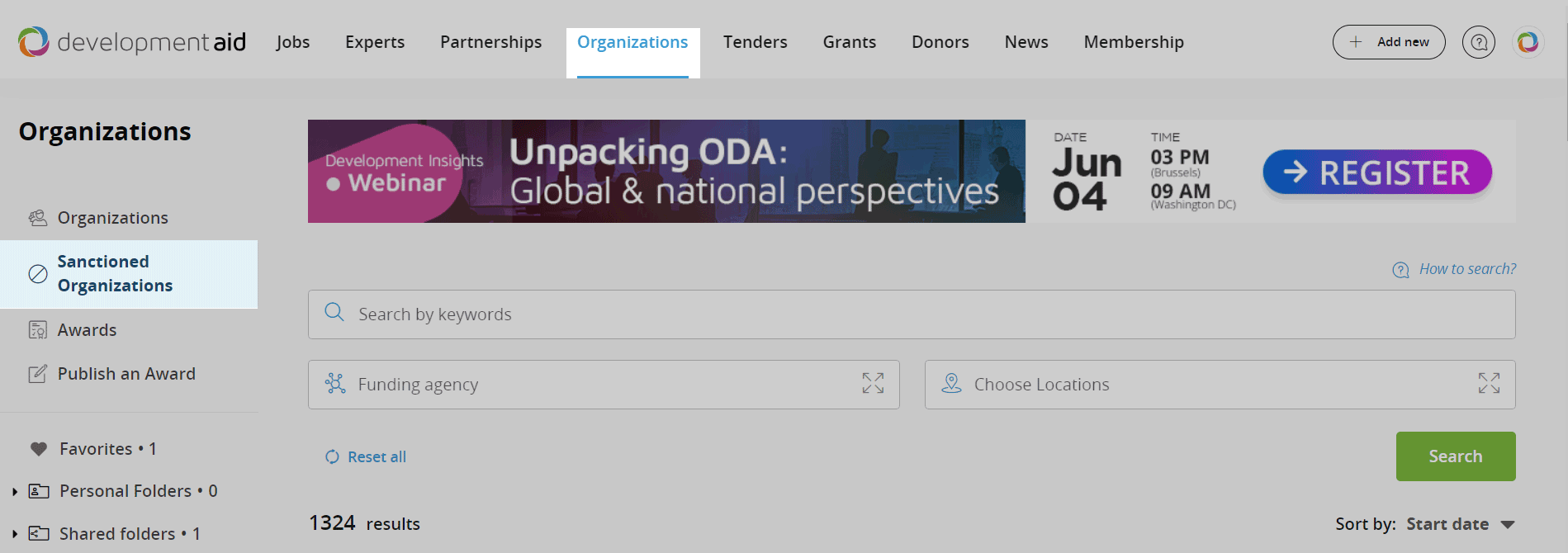International aid assistance forms the cornerstone for the achievement of sustainable development goals and there is definitely no room for fraud in the distribution of aid and the implementation of aid programs across the globe. However, as the amount of aid grows each year (in 2023 it hit an all-time high of over US$223 billion), the sector is neither secure nor immune to fraudulent activity. To guarantee that aid is efficient, transparent, and ethical, donors can sanction organizations that fail to live up to their expectations and violate certain rules.
An entity can be sanctioned in various ways. One measure that is highly effective in preventing and fighting fraud in international development is to maintain and update a list of sanctioned companies and organizations – a blacklist. Typically, companies or individuals that feature on this list are referred to as being blacklisted.
Aid donors, development organizations, non-governmental organizations and implementing companies as well as experienced individual consultants and professionals must always keep in mind that it is vital to check any potential partner against those that have been blacklisted as well as the list of affiliated companies.
How many companies are currently blacklisted and by which donors? Why is it important to be aware of sanctioned companies and how can individual experts identify those that have been blacklisted promptly by using DevelopmentAid’s Risk Management Tool? These are just a few of the issues we invite you to discover in our latest article.

Why is it important to be aware of sanctioned companies?
Sanction screening can prevent companies from doing business with people or organizations involved in illicit activity on whom financial penalties, bans, or other sanctions could be applied. Experts in international development must be aware of sanctioned companies in their sectors for several important reasons:
- Compliance and Legal Risks – having ties to sanctioned companies puts funding and operations at risk. It can also have potential legal repercussions and lead to project cancellations.
- Reputation Management – the credibility of an expert and their organization can be harmed by collaborating with sanctioned organizations which could result in the loss of future projects.
- Project Effectiveness – sanctioned companies demonstrate poor performance and can be engaged in fraud or corruption which can affect the success of projects.
Experts can help to ensure that development programs are more ethical and successful by remaining updated and avoiding common mistakes.
Using the DevelopmentAid’s Risk Management Tool to monitor sanctioned organizations
It is much simpler for consultants engaged in international development to find out if an organization has been blacklisted by a particular donor (i.e., has been found to be ineligible to be awarded a project) if they use the Risk Management Tool from DevelopmentAid – the largest online database for the development sector. This tool is only available to DevelopmentAid members and by using it, development professionals can be sure they receive the most recent information regarding entities that have been sanctioned.
Currently, the DevelopmentAid database features around 1,300 organizations in the field of international development that have been sanctioned. Compared to April 2023, this number is 35% lower which can be seen as a positive trend.
The majority of these organizations have been sanctioned by the United Nations Secretariat, the World Bank, the US Labour Department, the Asian Development Bank, the Inter-American Development Bank, and various governments. A more detailed picture is shown below.
Share of sanctioned entities by top 10 international development organizations
Source: DevelopmentAid
Donors can sanction organizations for various reasons. The primary ones, however, include:
- Corruption and fraud
- Non-compliance with ethical standards (human rights and environmental violations)
- Non-compliance with legal and regulatory requirements
- Violation of donor policies and guidelines
- Violation of international sanctions
- Misuse of funds
- Conflict of interest and lack of transparency
Let’s examine these transgressions and analyze the data in terms of the percentage of sanctions on certain grounds:
Share of sanctioned entities by the reason of the sanctions applied
Source: DevelopmentAid
What do corruption and fraud mean for donors?
Corruption can take many forms, including bribery, embezzlement, and fraudulent reporting. Fraud usually involves fabricating information, such as increasing costs or producing deceptive progress reports. By transferring funds intended for development into private hands and abusing the trust of stakeholders and beneficiaries, these actions reduce the effectiveness of aid programs.
Affiliates of debarred or sanctioned entities
Debarment describes the exclusion of an entity from taking part in projects funded by international donors or development organizations. Debarment is automatically applied when an organization has been found guilty of money laundering, fraud, bribery, or other violations of the ethical and legal standards set by the donor. If a company is an affiliate of a debarred entity, it can also be banned.
Final word
The Risk Management Tool provided by DevelopmentAid can be used by consultants to maintain a high level of effectiveness in international development operations. Applying stringent criteria and holding corporations accountable for their activities can ensure that aid reaches the people who need it most and helps to achieve sustainable development goals. Companies engaging in foreign development have to demonstrate ethical practices, regulatory compliance, and a high level of performance to avoid being sanctioned, and experts should keep an eye out for companies engaged in illegal activities.

